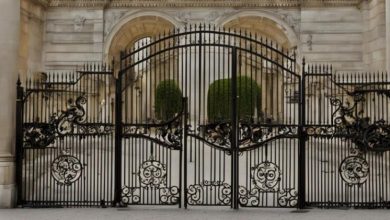What is the Importance of Doing Building Inspections?

If you have a building, either residential or commercial, you already know there are many things, which go into keeping the building safe and sound. From maintenance of the building’s interior to building materials’ interior, building compliance is important in ensuring installation stays secure and strong for many years to come. But you won’t be able to ensure the safety of your building on your own. There might be some unseen or minor issues in the building, which may compromise everyone’s safety. This is why it would be best to enlist the services of experienced and trained inspectors who have tools, like an infrared inspection camera. With such tools, an inspector will leave no stone unturned.
Understanding Property Inspection
Inspecting properties involves thorough assessments of the building’s condition that an inspector conducts. It also follows a process that aims at finding safety threats or hazards, which may affect occupants. The process often includes the following steps:
- Initial consultation & scheduling – The process starts with initial consultations between clients and inspectors. In this phase, you as a client, will share information about your building. This might include the property’s types and size. With this step, you will determine the inspection’s scope.
- Visiting the site and inspecting the exterior – Building inspectors visit properties on a scheduled day to thoroughly examine the exterior parts. It involves examining the doors, windows, roof, walls, foundation, and structural components. In addition, exterior inspections include assessing the site for different other factors. These factors are environmental concerns, landscaping, and drainage.
- Interior assessment – Once the exterior assessment is done, the inspector will shift to the interior inspection of the building. This phase focuses on the ceilings, walls, flooring, and structural elements’ integrity.
- Documentation & report generation – Following an on-site inspection, inspectors compile all their findings into detailed reports. These reports include an overview of the building’s condition. They often highlight safety concerns, necessary repairs, or deficiencies. Inspectors can as well add documentation and pictures of specific issues. With this, you will understand the findings even better.
How Regularly Should You Have Inspections Done?
The frequency of conducting an inspection depends on the building’s type and what you plan to use it for. If you have a commercial building, it will be necessary to do it yearly, but if it is a residential property, conduct it after six months. But in most states, the government lays out rules & regulations for regular inspections, and as a property owner, you must follow them.
Benefits of an Inspection
For some property owners, building inspection might seem like a burden and waste of time. But the truth is that it is not. On the contrary, it has benefits, like the following:
Help With Negotiations
Building inspections are invaluable when it comes to negotiation processes when selling a property. For a buyer, it gives them a list of structural issues, which might require the seller to address or negotiate for. For sellers, inspections provide issues, which have been addressed and identified. This, in turn, makes the building more attractive to buyers.
Code and Ordinance
Inspection is important for ensuring that a construction team follows local zoning laws, codes, and ordinances. For instance, depending on the building’s type under construction, coding laws will require you to add a particular number of smoke detectors on the property. An inspection will ensure all these codes are followed. Similarly, different lands are zoned for various purposes, including industrial, residential, or commercial. But the best way to ensure the property is used for the same purpose it was zoned for is to physically assess it.
Save Money
Enlisting the services of an inspection will cost money, but it can save you lots of it in the long term. It would be best to first know the building’s worth before you buy it. The last thing you want is to end up with a property, which needs you to fix many things. You can as well be conned about purchasing a property with many faults. This is where an inspector comes in handy. Your inspector knows how to assess buildings. Plus, you will benefit from the expert’s expertise when selling the property. They will point out issues, which require renovations and repairs.
Identify Safety Hazards and Defects
During an inspection, a qualified inspector will examine different properties, including roof spaces, windows, balconies, verandahs, internal rooms, and exterior walls that consist of different materials, such as paint and timber. By spotting defects, like water leaks, dampness, or structural damage during an inspection, you as a buyer, will make the right decision. An inspector can also identify safety hazards, including inadequate safety measures or faulty wiring, during an inspection. Proof of such issues will be part of negotiations with insurers before you make a purchase. Moreover, addressing those issues before buying the property doesn’t just ensure occupants’ safety. It as well as saves buyers from expensive maintenance expenses and repairs down the road.
Protect Your Investment
Inspections of buildings are there to protect investments. By ensuring your project meets compliance, safety, and quality standards, inspections will ensure your property remains an invaluable asset. This, in turn, minimizes the chances of illegal issues or unexpected repairs that may cost you money as well as time.
Improved Health
A building inspection ensures that health standards and regulations are followed. An inspection can be externally conducted by regulating bodies/third-party auditors, or internally by a contractor. The health inspection to be carried out, especially at a construction site must be exhaustively conducted as required in the following:
- Stepladders and ladders
- Work at height
- PPE
- Asbestos risks
- Electrical systems
- Storage
Assurance and Quality Control
A building inspection ensures construction projects meet quality standards. Building inspectors achieve this by examining materials used, workmanship, and compliance with plans as well as specifications.
The bottom line is that inspection of a building is an important step during a property-buying process. Through an inspection, you will get invaluable details about the condition of the property, giving you peace of mind that the decision you’re about to make is right. So, before you make any commitments to any property, hire a professional inspector to inspect it.





